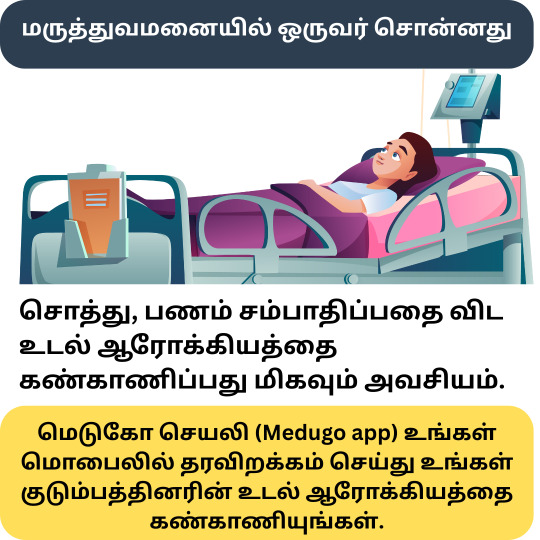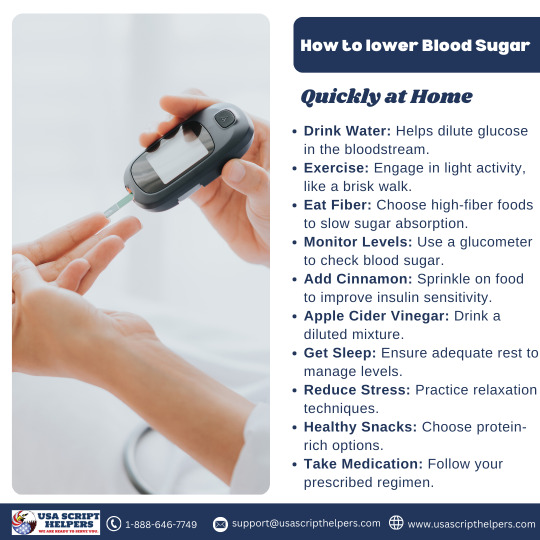#monitoring blood sugar levels
Explore tagged Tumblr posts
Text
Guide to Successful Self Blood Sugar Monitoring | Aum Pharmacy

Discover essential tips and techniques for successful self blood sugar monitoring and diabetes management in the comprehensive guide. Take control of your health today!
#diabetes management#managing diabetes#blood glucose monitoring device#diabetes control#monitoring blood sugar levels#self-blood sugar monitoring routine
0 notes
Text
Why Sugar Cravings Are More Than a Weakness
Have you ever wondered why sugar cravings seem to consume you, even when you know you shouldn’t indulge? It’s not simply a lack of willpower. Scientific research has revealed that sugar can trigger the same reward pathways in the brain as addictive substances. Moreover, studies have indicated that a diet high in sugar can lead to imbalances in gut bacteria, further intensifying these cravings.…
#blood level sugar#blood sugar#blood sugar monitor#granulated sugar#how to low sugar in blood#how to low sugar level#is sugar bad for you#is sugar good for you#is sugar inflammatory#normal glucose sugar levels#normal of blood sugar#sugar bowl#sugar bowl 2025#sugar bowling#sugar bush resort#sugar defenders#why sugar cravings#why sugar is addictive#why sugar is bad#why sugar is bad for you#why sugar level drops#without sugar food#without sugar fruits
2 notes
·
View notes
Text

உயர் இரத்த அழுத்தத்தைக் கட்டுப்படுத்தவும், இதய நோய் அ���ாயத்தைக் குறைக்கவும் வீட்டிலேயே உங்கள் இரத்த அழுத்தத்தைக் கண்காணிப்பது முக்கியம். உங்கள் இரத்த அழுத்தத்தை வீட்டிலேயே அளவிட, தானியங்கி அல்லது கைமுறை இரத்த அழுத்த மானிட்டரைப் பயன்படுத்தலாம். அடிக்கடி இரத்த அழுத்தத்தை அளவிடுவதன் மூலம், உங்கள் இரத்த அழுத்தம் அதிகரித்தால் உடனடியாகத் தெரிந்துகொள்ளலாம், மேலும் உங்கள் மருத்துவரின் உதவியுடன் அதைக் கட்டுப்படுத்தலாம்.
உங்களுடைய உயர் இரத்த அளவுகளை மெடுகோ செயலியில் (Medugo App) சேமித்து வையுங்கள். இன்றே உங்கள் மொபைலில் இந்த செயலியை தரவிறக்கம் செய்து உபயோகியுங்கள்.
#medugo#health vitals#health records#medical records#health app#blood report#blood sugar#blood pressure app#blood sugar monitor#blood sugar level#blood pressure#high blood pressure#blood glucose
2 notes
·
View notes
Text
...
#67 is not hospital level glucose. i just need to say that. that is go drink a juice box and monitor. not hospital blood sugar.#i just need to say that and get it off my chest.
4 notes
·
View notes
Text
COFFEE & its Consequences: 3 science tips you need to know
I’m diving into the effects of coffee on our health and glucose levels. Let’s tackle the beloved ritual of coffee drinking – from the benefits and potential glucose spikes caused by black coffee to the impacts of sugar, sweeteners, and different types of milk. Are you kidding me? Do we really need to add this into our milks? Seriously, it’s super frustrating! Hello, angels, and welcome to The…
#almond milk#antioxidants#beta cells#biochemistry#black coffee#blood sugar#breakfast#caffeine#caffeine sensitivity#carbs#coconut milk#coffee#coffee alternatives#coffee benefits#coffee lovers#cravings#dairy#energy levels#fat burning#glucose#glucose control#glucose levels#glucose monitoring#glucose roller coaster#glucose spike#health#healthy eating#healthy fats#insulin#insulin spikes
3 notes
·
View notes
Text
5 common signs of high blood sugar that are often ignored | - Times of India
Maintaining healthy blood sugar levels is vital for overall well-being, as elevated levels can indicate diabetes or prediabetes. Over time, unchecked high blood sugar may cause heart disease, kidney damage, and nerve problems. Recognizing early signs such as fatigue, thirst, blurred vision, slow healing, and unexplained weight loss is crucial for timely intervention and management. Keeping blood…
#diabetes warning signs#health complications from diabetes#high blood sugar signs#hyperglycemia symptoms#monitor blood sugar levels
0 notes
Text
What Does “Glucose” in Your Blood Test Mean and Should You Be Concerned?

Have you ever looked at your lab report and wondered what glucose represents and whether your levels are normal or worrisome? In the article “What Does ‘Glucose’ Mean in a Blood Test? Understanding Your Numbers and Why They Matter”, Better Nutrition News clearly explains what those glucose figures indicate about your metabolic health.
Glucose is the primary sugar your body circulates in the bloodstream to fuel its cells. The article outlines typical ranges: fasting glucose is generally 70–99 mg/dL (3.9–5.5 mmol/L), and post-meal (postprandial) readings usually remain below 140 mg/dL. Levels consistently above these can suggest insulin resistance or diabetes, while values below normal may trigger symptoms like dizziness or confusion.
It also clarifies the roles of two key blood tests. The fasting glucose test measures blood sugar after fasting, capturing a momentary picture. The HbA1c test, which measures how much glucose is bound to hemoglobin, reflects average blood sugar over the past two to three months. Together these tests help doctors assess current glucose control and long-term trends.
The article further provides practical guidance: monitor your levels if you’re at risk, focus on a balanced diet, stay active, and get consistent sleep. These lifestyle habits improve insulin sensitivity and support stable glucose regulation. Even small adjustments can make a meaningful difference in your metabolic health.
For deeper insight into what your glucose numbers mean and expert advice on managing blood sugar, visit Better Nutrition News.
0 notes
Text
🍊 Which Fruit Is Not Good for Diabetes? Shocking Truths + Top 10 to Avoid
Which fruit is not good for Diabetes? Discover the top 10 fruits to avoid, shocking health truths, and better choices for blood sugar control. 🥝 Introduction: Fruits and Diabetes — A Love-Hate Relationship Fruits are nature’s candy — sweet, juicy, and packed with vitamins. But if you’re living with diabetes, they can also be a source of frustration. Many diabetics wonder: which fruit is not…

View On WordPress
#Blood sugar#Carbohydrates#Continuous glucose monitor#diabetes#diabetic neuropathy#diet#Diet plan#Endocrinology#Foot care#Glucose monitoring#Glycemic index#HbA1c#health#Hyperglycemia#Hypoglycemia#insulin#Insulin pump#Ketoacidosis#Lifestyle change#Medical nutrition therapy#Metformin#nutrition#Obesity#Pancreas#prediabetes#Retinopathy#Sugar levels#Type 1#Type 2#wellness
0 notes
Text
A1C Test (HbA1C): Meaning, Normal Range, Diabetes Diagnosis
Learn everything about the A1C test (also called HbA1C or Glycohemoglobin). Discover its purpose and normal ranges. Understand how it diagnoses type 2 diabetes and prediabetes. Learn how it helps manage blood sugar levels over time. Understanding A1C: The Essential Blood Test for Diabetes Management Also called: Glycohemoglobin | HbA1C | Hemoglobin A1C TestCategory: Diagnostic | Endocrinology |…
#A1C#A1C calculator#A1C goal#A1C levels#A1C test#average blood sugar#blood glucose#blood sugar test#blood test for diabetes#Dailyprompt#diabetes monitoring#diabetes test#eAG#Glycohemoglobin#HbA1C#Hemoglobin A1C#high A1C#low A1C#normal A1C#prediabetes#type 2 diabetes
1 note
·
View note
Text
Without Sugar Food: Are You Sure?
You’ve likely encountered “sugar-free” products lining supermarket shelves, promising guilt-free indulgence. But have you ever stopped to consider what truly lurks beneath the label? Many foods marketed as sugar-free often contain hidden sources of sweetness, like artificial sweeteners or disguised forms of sugar. These substitutes can still impact your health and contribute to overall sweetness…
#blood level sugar#blood sugar#blood sugar monitor#granulated sugar#how to low sugar in blood#how to low sugar level#is sugar bad for you#is sugar good for you#is sugar inflammatory#normal glucose sugar levels#normal of blood sugar#sugar bowl#sugar bowl 2025#sugar bowling#sugar bush resort#sugar defenders#why sugar cravings#why sugar is addictive#why sugar is bad#why sugar is bad for you#why sugar level drops#without sugar food#without sugar fruits
0 notes
Text
Your Health is Better Series - Dealing with Diabetes (5)
Managing diabetes effectively requires a comprehensive and personalized approach, as each person’s needs and circumstances are different. One of the best ways to ensure optimal control of blood sugar and overall health is to work with a healthcare professional to develop a personalized diabetes management plan. This plan is tailored to your specific health needs, lifestyle, and goals, helping you make informed decisions about diet, exercise, medication, and monitoring.

Why is a Personalized Diabetes Management Plan Important?
Diabetes is a complex condition where the body either doesn't produce enough insulin (as in type 1 diabetes) or doesn’t use insulin properly (as in type 2 diabetes). Insulin is crucial for regulating blood sugar levels, and without effective management, high blood sugar can lead to complications like heart disease, kidney damage, nerve damage, and vision problems. Each individual has unique factors that influence how diabetes affects their body, such as age, activity level, other health conditions, and personal preferences. A personalized plan helps address these individual needs, making diabetes management more effective.
How Can a Healthcare Professional Help?
A healthcare professional, such as a doctor, endocrinologist, or diabetes educator, plays a critical role in developing and guiding your management plan. Here’s how they can assist:
Assessing Your Health: Your healthcare professional will begin by evaluating your overall health. This includes checking your blood sugar levels, weight, blood pressure, cholesterol, and any other relevant medical issues. They will also ask about your lifestyle, including your diet, exercise habits, and any challenges you face in managing diabetes.
Setting Personal Goals: Based on your health assessment, your healthcare provider will help you set realistic and achievable goals. These might include target blood glucose levels, weight loss, improving exercise habits, or managing any other health issues like high blood pressure or high cholesterol. Personalized goals help keep you motivated and on track.
Tailoring Diet and Exercise Recommendations: A significant part of managing diabetes involves making healthy food choices and staying physically active. Your healthcare professional will work with you to develop a diet plan that supports blood sugar control, taking into account your preferences, cultural habits, and nutritional needs. They will also help you set up an exercise routine that fits your lifestyle and ability, as regular physical activity is essential for managing blood glucose and improving insulin sensitivity.
Managing Medications: If necessary, your healthcare provider will prescribe medications to help control your blood sugar levels. This could include oral medications, insulin, or other drugs, depending on your type of diabetes and overall health. A personalized plan ensures you understand how and when to take your medications, potential side effects, and how they fit into your daily routine.
Monitoring Blood Sugar: Regular monitoring of blood glucose is a crucial part of managing diabetes. Your healthcare provider will help you determine how often and when to check your blood sugar levels, based on your treatment plan. This will allow you to make timely adjustments to your diet, activity level, or medication if needed.
Providing Ongoing Support and Education: Diabetes management is an ongoing process, and things can change over time. Your healthcare provider will offer continuous support and adjust your plan as needed. They can provide education on new diabetes management tools, technologies, and strategies to keep you informed and in control.
The Benefits of a Personalized Plan:
A personalized diabetes management plan offers several benefits:
Better Blood Sugar Control: A tailored approach helps you maintain blood glucose within a healthy range, reducing the risk of complications.
Improved Quality of Life: By addressing your individual needs and preferences, the plan can make managing diabetes less overwhelming and more achievable.
Empowerment and Motivation: Having a clear plan and support from a healthcare professional can boost your confidence in managing diabetes, making it easier to stick to your goals.
#Diabetes management plan#Healthcare professional#Personalized plan#Blood sugar control#Health assessment#Blood glucose levels#Nerve damage#Vision problems#Personal goals#Diet plan#Exercise routine#Insulin therapy#Blood pressure#Cholesterol#Monitoring blood sugar#Blood glucose monitoring#Ongoing support#Diabetes education#Lifestyle habits#Empowerment#Motivation#Quality of life#Insulin sensitivity#Health needs#Diabetes management tools#Blood glucose range#Health goals#Ongoing process
0 notes
Text
Managing Diabetes Effectively with Regular Blood Sugar Monitoring

Diabetes is more than a condition—it’s a lifestyle that demands care, attention, and proactive management. Managing it effectively is not just about taking medications; regular monitoring plays an equally important role in maintaining your health and preventing complications. In this blog, we’ll explore why tracking blood sugar levels consistently is vital and how it helps you lead a healthier life.
Understanding the Importance of Diabetes Monitoring
Knowledge is power, and when it comes to diabetes, it’s the power to take control. Diabetes affects how your body processes glucose, the primary source of energy. If left unchecked, abnormal blood sugar levels can lead to serious complications, including heart disease, kidney damage, nerve damage, and even vision problems. Regular monitoring provides real-time insights into your body’s glucose levels, helping you:
Identify Blood Sugar Trends: Detect patterns in blood sugar levels after meals, exercise, or stress
Prevent Hypoglycemia and Hyperglycemia: Address dangerously low or high sugar levels before they escalate into emergencies
Evaluate the Effectiveness of Treatment: Understand how medications, lifestyle changes, or insulin therapy are impacting your condition
How to Monitor Blood Sugar Effectively
To get the most accurate results, it's important to follow best practices when monitoring blood sugar. Here's a step-by-step guide:
1. Invest in a Reliable Glucometer: Choose a device that's user-friendly and provides quick, accurate readings.
2. Know When to Test:
Fasting Levels: Check your blood sugar first thing in the morning
Post-Meal Levels: Test two hours after meals to understand how food affects your glucose
Random Levels: Check at any point during the day for overall monitoring
3. Keep a Log: Record your readings in a notebook or use a mobile app designed for diabetes management.
Tip: Clean your hands thoroughly before testing to avoid contamination and inaccurate results.
Benefits of Regular Monitoring
Monitoring blood sugar levels has some major benefits:
1. Improved Glucose Control
When you consistently monitor your levels, you can adjust your diet, activity, or medication accordingly. This leads to better glucose stability and fewer fluctuations.
2. Reduced Risk of Complications
High blood sugar can damage vital organs over time. Monitoring allows you to detect and correct spikes early, reducing the risk of long-term complications like diabetic neuropathy or retinopathy.
3. Enhanced Energy and Mood
Stable blood sugar levels contribute to a steady energy supply, reducing fatigue and mood swings caused by glucose imbalances.
4. Customized Care Plans
Sharing your readings with your doctor helps them tailor your treatment plan, ensuring it’s aligned with your specific needs.
The Link Between Monitoring and A1C Levels
Daily monitoring is the bridge between today’s actions and tomorrow’s success.
Your haemoglobin A1C level is a crucial marker of diabetes management. It reflects your average blood sugar levels over the past three months. Regular monitoring complements A1C testing by providing immediate feedback and helping you achieve target levels.
Ideal A1C Range: Generally, an A1C level below 7% is considered well-managed for most adults with diabetes
Impact of Daily Monitoring: Studies have shown that individuals who monitor their blood sugar regularly are more likely to maintain healthier A1C levels
The Role of Technology in Diabetes Monitoring
Why do it the hard way when technology makes it easy? Modern advancements have made monitoring easier than ever. Here’s how technology can revolutionize diabetes care:
1. Continuous Glucose Monitors (CGMs): These devices provide real-time data on glucose levels, alerting you to highs or lows instantly.
2. Diabetes Management Apps: Apps like MySugr, Glucose Buddy, or Dexcom allow you to log readings, track trends, and set reminders for testing.
3. Smartwatches: Devices like Apple Watch can integrate with CGMs, giving you glucose insights at a glance.
Tech Tip: Always keep your devices charged and calibrated for accurate readings.
The Consequences of Neglecting Monitoring
Failing to monitor your blood sugar regularly can have serious consequences, including:
1. Silent Complications: High blood sugar can cause organ damage without noticeable symptoms initially.
2. Uncontrolled Diabetes: Erratic glucose levels can worsen your condition, leading to complications like ketoacidosis or hypoglycemic shocks.
3. Increased Hospitalizations: Poor monitoring often results in emergency visits due to unmanageable sugar levels.
Tips to Incorporate Monitoring into Your Routine
Building a consistent monitoring habit doesn’t have to be overwhelming. Here are some practical tips:
1. Set Reminders: Use alarms or notifications to remind you to check your sugar levels.
2. Make It Convenient: Keep your glucometer in a handy spot, like your bedside table or bag.
3. Reward Yourself: Celebrate milestones like maintaining stable glucose levels for a week to stay motivated.
4. Involve Family: Encourage family members to support your monitoring efforts or check alongside you for accountability.
Monitoring your blood sugar levels isn’t just a task - it’s a powerful tool for taking charge of your health. By understanding your body, identifying triggers, and making informed lifestyle choices, you pave the way for better management of diabetes. Consult a diabetologist for expert guidance, personalized care, and the tools to live your healthiest life yet.
#best diabetes hospital in Madurai#top diabetologist in Madurai for sugar control#where to check blood sugar levels in Madurai#affordable diabetes treatment in Madurai#how to manage diabetes naturally in Madurai#best doctor for diabetes management in Madurai#diabetes care clinic near me in Madurai#top endocrinologist in Madurai for diabetes#best hospital for insulin therapy in Madurai#where to get blood sugar test in Madurai#effective diabetes diet plan in Madurai#best diabetes care center in Madurai#regular blood sugar monitoring services in Madurai
0 notes
Text
Are You Getting Enough Sleep? 😴💤
Hey, night owls and restless sleepers! 🦉 Ever wonder why your blood sugar feels like it’s on a rollercoaster? 🎢 Well, it might just be your sleep schedule throwing things off! 😱
Getting 7-9 hours of sleep isn’t just for feeling fresh in the morning—it’s also about giving your brain the rest it needs to recharge! 💡 Think of your brain as your phone battery: if you’re running on 5%, it’s not gonna function too well, right? 🧠🔋
So, if you’re pulling late nights with Netflix or that “one more episode” (guilty! 🙋♂️), your body might be silently plotting its revenge. 😅 Lack of sleep messes with your blood sugar and makes those cravings for sweets even stronger. 🍩 Not to mention, a tired brain = more stress = more sugar spikes. 🙃
Next time you’re tempted to stay up, remember—your brain needs that beauty sleep to keep you balanced. Let’s make sleep our superpower and recharge for a healthier, happier tomorrow! 🛏️💪

#diabetic#type 2 diabetes#blood sugar#blood suger balance#health and wellness#blood suger control#health tips#glucose#glucose management#glucose monitoring#glucose levels
0 notes
Text

🔔 Quick Tips to Lower Blood Sugar at Home! 🏡 🔔
Drink water, exercise, eat fiber, monitor levels, add cinnamon, use apple cider vinegar, get enough sleep, reduce stress, choose healthy snacks, and take medication. Stay healthy! 💪✨ #BloodSugar #DiabetesManagement #HealthyLiving #usasscripthelpers
#usascripthelpers#diabetes management#diabetes care#diabetes treatment#diabetes mellitus#diabetes symptoms#diabetic#insulin#high blood sugar#blood sugar monitoring#blood sugar levels#blood sugar control#high blood pressure
0 notes
Text
High blood sugar levels in the morning? Know what the “dawn phenomenon” is and ways to lower your sugar levels | - Times of India
For individuals with diabetes, controlling blood sugar levels is a daily challenge. One common issue is waking up to higher-than-expected morning blood glucose levels, which can be both confusing and frustrating. This phenomenon is often attributed to the “Dawn Phenomenon,” a natural rise in blood glucose levels that occurs in the early morning hours. Accurate morning glucose measurement is…
#blood sugar control#continuous glucose monitoring#dawn phenomenon#diabetes complications#Diabetes Management#high blood sugar levels#morning blood glucose levels#symptoms of high blood sugar#ways to lower blood sugar
0 notes
Text
4 Key Benefits of Managing Diabetes Effectively 🌟
1. Follow a Healthy Eating Plan 🌿 2. Stay Physically Active 🏃♂️ 3. Monitor Blood Sugar Levels Regularly 🩸 4. Keep Up with Regular Check-Ups 🩺
#1. Follow a Healthy Eating Plan 🌿#2. Stay Physically Active 🏃♂️#3. Monitor Blood Sugar Levels Regularly 🩸#4. Keep Up with Regular Check-Ups 🩺#DiabetesManagement#HealthyLiving#BloodSugarControl#StayActive#HealthyEating#RegularCheckUps#DiabetesAwareness#HealthyLifestyle#WellnessJourney#ManageDiabetes
0 notes